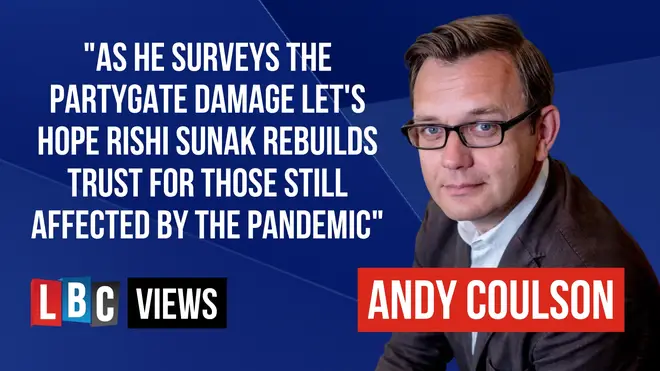
Richard Spurr 1am - 4am
24 March 2023, 14:55

That the Partygate performance from Boris Johnson this week coincided with the third anniversary of lockdown is an irony not lost on most.
His appearance in front of the Privileges Committee has resurfaced for many the sacrifices that (almost) the whole nation made for the common good in tackling the pandemic.
The impact of Mr Johnson’s rule-breaking (I’m with others that it’s now time to stop using the more cheerful Boris) is multi-faceted. Wednesday’s hearing I suspect would have caused many to took another few steps back from Westminster and our politicians. That chasm, I fear, has now never been wider and will be a key factor in the next general election.
But the more immediate damage done is from the distraction the Partygate circus causes from other crucial issues of the day. While 23rd March marked a day of looking back at what we went through in 2020, a large group of largely ignored people are looking ahead to the start of a fourth year of lockdown.
On my Crisis What Crisis?Podcast last October, we revealed the ongoing crisis being endured by the ‘Forgotten 500,000’ – those British citizens whose compromised immune systems mean they live in constant fear of infection, serious illness or death from Covid-19. Because of their conditions or medication, they do not respond to vaccines and, because of inaction from a distracted government, have been left without effective protection that allows them to return to their normal lives.
My guest Professor Martin Eve told us about his first-hand experience of a lockdown that never ended because of a government refusal to act. While a drug, called Evusheld, had been approved for use, our officials refused to make it available on the NHS – despite it being rolled out in more than 30 other countries.
As Martin told me: "the United Nations defines torture as 15 days of solitary confinement – we're now in the 900 days territory" and we can add another six months to that. He said he regularly received messages from others whose mental health was at breaking point. Families still living apart, people unable to get out to work, friends unable to meet up for the social activities the rest of us take for granted.
Little has changed since October and the long wait continues. The government’s agency for health and care excellence, NICE, committed last month to look at an accelerated process when updating recommendations on the cost-effectiveness of treatments, but only for existing medications and not new ones. So, the reality is that the urgently required protection against Covid is still blocked by a wall of bureaucracy.
In an attempt to bring much-needed attention to this issue, patient group 'Evusheld for the UK’, 20 national charities, and cross-party parliamentarians yesterday delivered a joint letter to the Prime Minister. They are calling for a Minister to be made response for clinically vulnerable groups and that the new rapid process for evaluating potential protective treatments is implemented as a priority.
In their letter, they say “As Prime Minister, you have stated that this Government will look after its most vulnerable. We now hold you to this and ask that you prioritise action that will protect and change their lives, allowing them the freedom that the rest of society has gained. They too deserve the protection to enable them to live their lives with Covid.”
While the vast majority of us are getting on with 'living with Covid', for thousands of others to live with Covid is still a matter of life and death. Let’s hope that as he digests the damage done by Mr Johnson and Partygate, Rishi Sunak seizes this opportunity to rebuild some trust for those still impacted by the pandemic.
For more information on the campaign, visit https://getevusheld.uk/500k/.
Andy Coulson is the Founder of Coulson Partners and host of the podcast Crisis What Crisis?